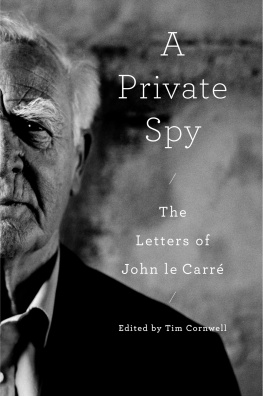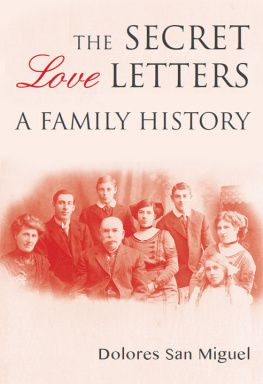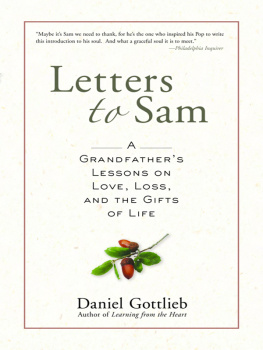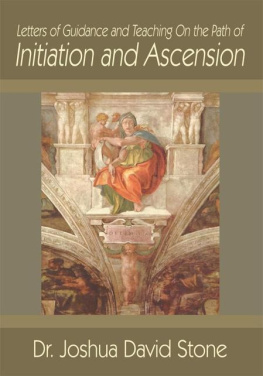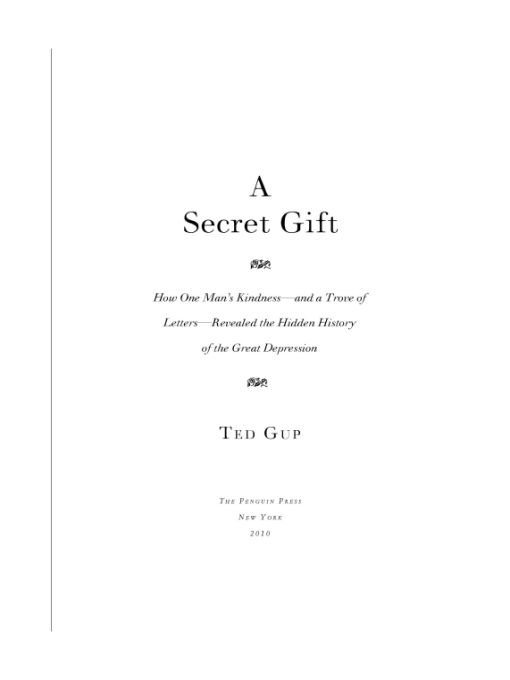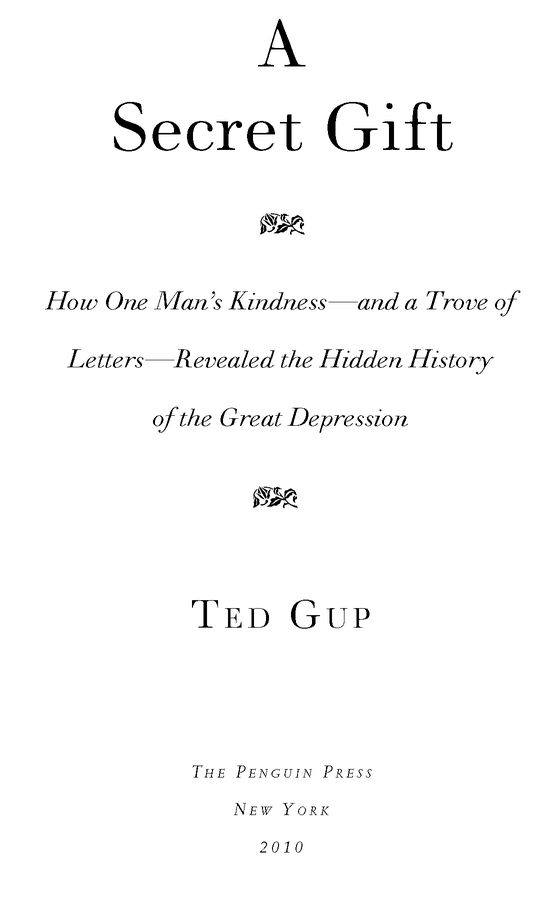Table of Contents
ALSOBY TED GUP
The Book of Honor:
Covert Lives and Classified Deaths at the CIA
Nation of Secrets:
The Threat to Democracy and the American Way of Life
For my mother, Virginia,
Her sister, Dorothy,
And in Memory of Minna and Sam
And the Good People of Canton, to whom so much is owed
Other states indicate themselves in their deputiesbut the genius of the United States is not best or most in its executives or legislatures, nor in its ambassadors or authors, or colleges or churches or parlors, nor even in its newspapers or inventorsbut always most in the common people, south, north, west, east, in all its states, through all its mighty amplitude.
WALT WHITMAN , 1855
It was the ordinary pities and fears consumed us.
We gathered on porches; the moon rose; we were poor.
What audience would ever know our story?
Beyond our windows shown the actual world.
We gathered on porches; the moon rose; we were poor.
And time went by, drawn by slow horses.
Somewhere beyond our windows shown the actual world.
The Great Depression had entered our souls like fog.
FROM PANTOUM OF THE
GREAT DEPRESSION ,
DONALD JUSTICE
I.
A Christmas Carol
The Offer
[Christmas is] the only time I know of, in the long calendar of the year, when men and women seem by one consent to open their shut-up hearts freely, and to think of people below them as if they really were fellow passengers to the grave, and not another race of creatures bound on other journeys.
CHARLES DICKENS , A CHRISTMAS CAROL (DECEMBER 1843)
It was Sunday, December 17, 1933, a cold and drizzly day, when B. Virdots plan began to take shape. That evening, outside the First Presbyterian Church, beneath its soaring twin battlements, hundreds of families gathered. Parents took their childrens hands and climbed the wide sandstone steps to enter the gothic sanctuary. Here, at the center of this beleaguered city, the faithful had come for generations. President William McKinley himself had been married here. But on this night, they assembled to hear a reading of Charles Dickenss A Christmas Carol. It was a tradition of long standing, but during this bleak holiday season, it took on special meaning. Pressed shoulder-to-shoulder in the stiff-backed pews, they were drawn from every corner of the city: church elders, men and women of privilege, jobless millworkers, tradesmen forced to sell their tools, bankrupted shop owners, widows trying to hold on to their children.
At the front of the sanctuary was a crche with the baby Jesus, and around it, stunted pine trees festooned with tinsel and glistening ornaments. Festive greenery hung from the choir loft above. For many of these children it was all the Christmas they would see. They listened as Dr. Delbert G. Lean, professor of oratory from nearby Wooster College, read of the miserly Ebenezer Scrooge, of the ghosts that tormented him, and of a gift that transformed one poor familys Christmas. Only one who had lived such a lifewho had lost his home, seen his father tossed in debtors prison, and been pressed into factory labor as a child, as Dickens hadcould understand what such a tale might mean to these congregants.
Malnourished parishioners must have salivated to hear the words There never was such a goose... and fought back tears as Tiny Tim proclaimed, God Bless us, everyone. They too hungered for someone to bless them with a Christmas dinner, to lift them, if only for a moment, out of their misery. Then, one by one, they shuffled past the Reverend James Wilson Bean, steeling themselves against a frigid night and, for many, an empty cupboard.
The pastor too returned to his home, which, like many, had grown accustomed to the soft knock of the hoboes and the homeless, hoping that a walk needed shoveling or a step, mendingin exchange for a sandwich and a cup of coffee. Some members of the churchs board would have been glad to be rid of Bean. His outspoken sympathies for the poor were fine, but at that moment the church could ill afford to think of anything but its own survival. Beans pay had been cut. The benevolences, as the fund for the needy was called, had been slashed. Church accounts had been frozen with the failure of the Dime Savings Bank in October 1931, forcing it to make do with the few dollars left in petty cash. Attendance was plummeting. Even among the stalwarts, some were losing faithin themselves, in one another, and in God.
Christmas was a week away, but for many, it meant just another day to get through. For four years, Cantons 105,000 citizens had been battered by the Great Depression. Around town, parents were using strips of tires to extend the life of worn-out shoes, the union mission was bursting with the homeless, and scrawny children in patched coats were scavenging for coal along the B&O Railroad tracks. Many of those lucky enough to still have homes had sold the furniture, beds and all, and huddled together on bare floors or sat on old orange crates. So it was around the country. And B. Virdot saw it all.
Newspapers, selling for three cents a copy, were shared, family to family, and read by kerosene lamp. For many, electricity was a luxury as remote as a ride on the bus or a visit to the doctor. Children went to school on empty stomachs. Many would not learn the meaning of the word breakfast until years later. In back alleys, dogs and cats were left to fend for themselves and could be seen pawing through refuse for scraps. Thousands of Cantons depositors were shocked to discover their banks padlocked, their savings gone. Mothers and fathers did what they could to hide their despair from the childrenand from each other. All the while, the asylum, the county poorhouse, the city orphanage, and the reformatory swelled with the casualties of the Hard Times. It was a landscape Dickens would have recognized.
Far off in Washington, a new president had proclaimed earlier in the year that the only thing we have to fear is fear itself. In Canton, and across the country, it didnt feel that way. By Christmas 1933, two million Americans were homeless. Tens of thousands rode the rails in search of a job. One in four Americans was out of work. In Ohio, it was worse. There the jobless numbered more than one in three. And in industrial centers like Canton some put the number at 50 percent. There was no purpose in counting. No relief was to be had.
Until then, Canton had always been a proud city where skilled and unskilled hands alike had found opportunity. Its immigrant-rich labor pool, the centrality of its location, the convergence of railroads, and the richness of its mineral deposits had given rise to major industries, like Hoover, Timken, Diebold, and Republic Steel. The sweepers, roller bearings, safes, and steel they produced could be found worldwide. Now some forges were idle and cold. Many assembly lines were reduced to skeleton crews that went through the motions of maintenance, turning out the lights, and going home.


